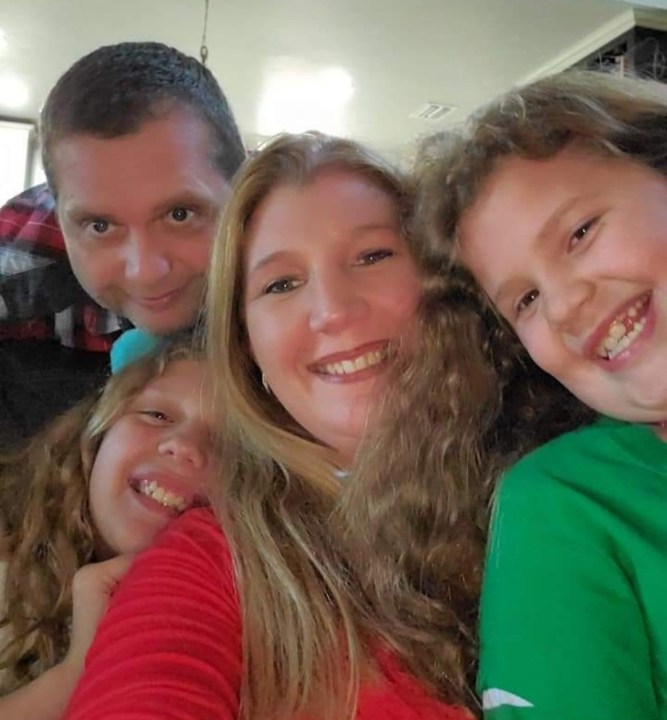TAMP, Fla. (WFLA) — Floridians as young as 16 can now get the COVID-19 vaccine, and trials are underway to get shots into the arms of children as young as six months.
But 8 On Your Side found some Tampa Bay area parents who don’t want this vaccine getting near their children.
Vaccine hesitancy
Tami Spicer is not an anti-vaxxer. Like many parents, she always made sure her girls received required vaccinations. But not this time.

Why? Tami, like some others believe, the drug companies rushed the COVID-19 vaccines. Tami fears an unknown danger lurks out there.
“I wear my mask. I socially distance. I use my hand sanitizer,” she explained.
The Pasco County mom knows coronavirus is deadly. She and her girls follow CDC guidelines but she wants answers before she allows anyone in her household to get the COVID-19 vaccine.
“I just, I don’t want anything to happen… to me,” said Tami. “I love them and I just, I want to be here.”
Tami worries researchers, drug makers and the government rushed development and approval of the vaccines.
“Is it going to mess my daughter up? Is she going to be able to have kids?” said Tami. “I felt like people like me – mothers, and people who are worried – need to have some answers.”
What studies have found
While 100,000 people, some as young as 16, were in the initial trials last summer, drug makers are only now starting to test the vaccine on pre-teens, toddlers and babies. Last week, Pfizer wrapped up a study involving approximately 2,000 in the 12 to 15 age bracket.
Dr. Charlie Sand, an emergency physician at St. Joseph’s Hospital-turned COVID-19 advisor for Hillsborough County and the state, explained the findings.
“Kids down to 12 – not only were they 100% protected, there were no side effects, other than maybe sore arm,” Dr. Sand said.
Those initial results, according to Dr. Sand, hold great promise.
“Would you let your teenage children get vaccinated?” Investigative Reporter Mahsa Saeidi asked.
“I would let my child of any age get vaccinated,” he said. “I’d be comfortable going down to six months old.”
How do the vaccines work?
There’s a lot of misinformation out there – like the vaccine has the live COVID-19 virus, the shot alters your DNA or the vaccine tracks you with a microchip.
All of this is false, according to scientists.
The Pfizer and Moderna vaccines basically give instructions to your cell to manufacture a protein found on the outside of the virus. Your immune system makes antibodies to fight off this protein, which means, if COVID-19 shows up, you’ll fight it too.
Johnson and Johnson’s shot, a viral vector vaccine, works in a similar way.
What about long-term impacts?
According to Dr. Sand, getting vaccinated is safer than risking infection. But Tami wonders about complications three, five – and even 10 years down the road from now.
“How can you say that will not happen?” asked Saeidi.
“Can’t. We can’t… But what we can say is, so far, we haven’t seen it in nine months,” said Dr. Sand. “Pretty much most – the majority of bad side effects from a vaccine happen in the first six weeks… historically. And we’ve made it to nine months.”
Dangers of COVID-19 and kids
How dangerous is coronavirus for our youth?
State records show 571 kids age 4 and under were hospitalized and one died.
In the 5 to 14 age group, 563 were hospitalized and five died.
In the age bracket tracking those 15 to 24 years old, more than 2,150 were hospitalized and 44 died.
“My decision [about vaccinating] could change… if there was enough information,” said Tami.
We know the short-term side effects of the vaccine for adults: sore arm, fever and nausea. Sixteen and 17-year-olds are now getting shots too but data regarding their side effects is not yet available.
While Dr. Sand says there’s no evidence this vaccine causes issues long-term, COVID-19 does. So-called long-haulers experience problems like stroke, kidney failure and memory loss.
Pediatric studies will be completed later this year.










